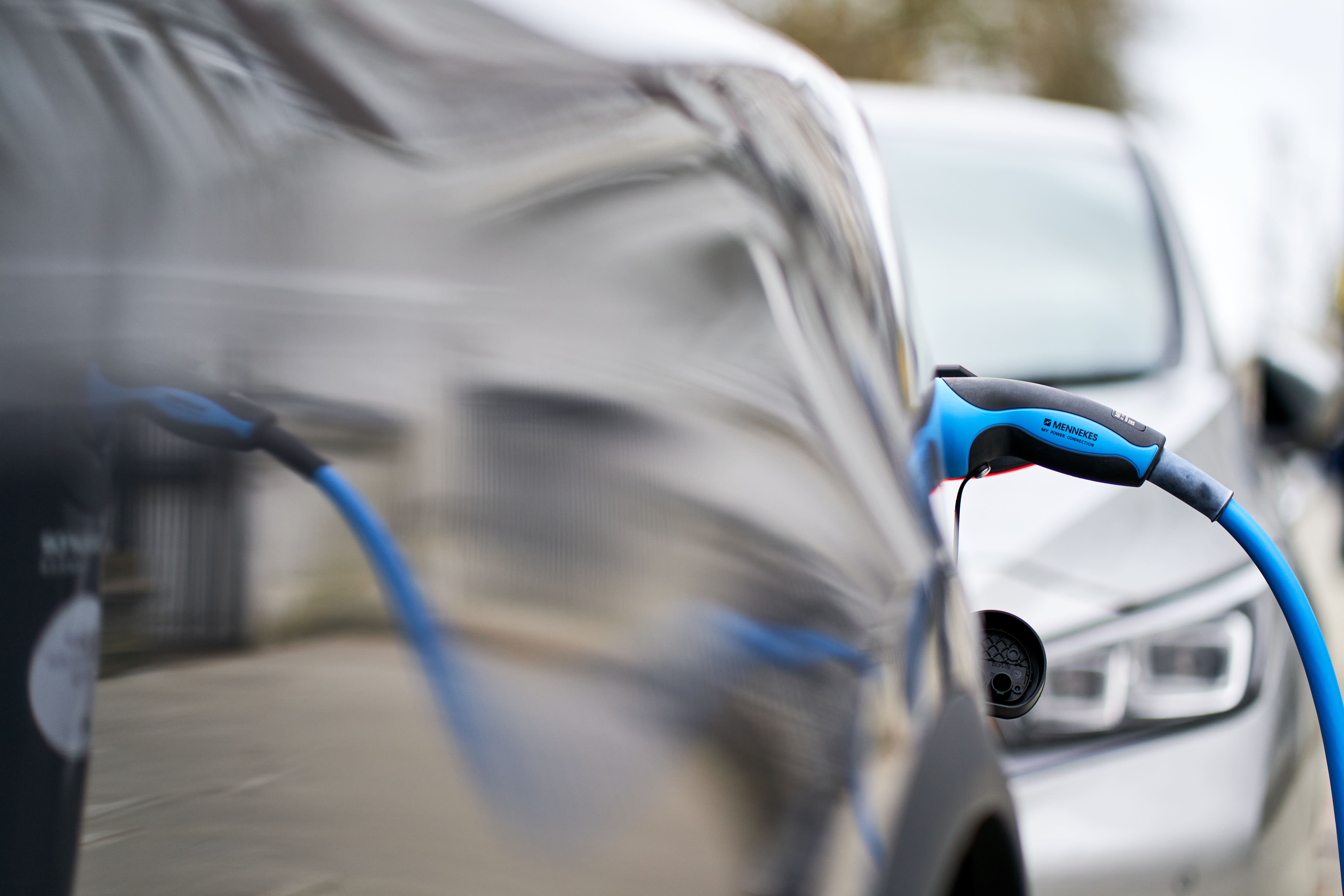Electric car drivers pay more for slower chargers
The AA said the average cost of recharging a battery to 80% using a slow charger on a pay as you go basis was £33.26 last month.

Your support helps us to tell the story
From reproductive rights to climate change to Big Tech, The Independent is on the ground when the story is developing. Whether it's investigating the financials of Elon Musk's pro-Trump PAC or producing our latest documentary, 'The A Word', which shines a light on the American women fighting for reproductive rights, we know how important it is to parse out the facts from the messaging.
At such a critical moment in US history, we need reporters on the ground. Your donation allows us to keep sending journalists to speak to both sides of the story.
The Independent is trusted by Americans across the entire political spectrum. And unlike many other quality news outlets, we choose not to lock Americans out of our reporting and analysis with paywalls. We believe quality journalism should be available to everyone, paid for by those who can afford it.
Your support makes all the difference.Electric car owners pay more to use slow chargers than fast ones, new analysis has revealed.
The AA said the average cost of recharging a battery to 80% using a slow charger on a pay as you go basis was £33.26 last month.
That was 10% more than the typical price of £30.18 for fast chargers, which are commonly located in car parks where vehicles are left for several hours.
It may be beneficial to join the subscription service
Slow chargers are often fitted to lampposts and are generally used by people without off-street parking at home.
They are rated at speeds of up to 7kW, making them most suitable for overnight charging.
Fast chargers are rated at 8-22kW.
The AA analysed prices without connection fees at 6,284 chargepoints across the UK.
It noted that many chargepoint providers offer subscription services that unlock slightly cheaper rates.
Domestic charging is the cheapest option for electric car owners, with an average price of £20.94 to bring a battery to 80%.
Rapid chargers cost £36.96, with ultra-rapid chargers setting users back £42.50.
The AA’s analysis shows running a diesel car is cheaper than using rapid or ultra-rapid chargers.
But keeping a petrol car on the road is only cheaper than an EV topped up at ultra-rapid chargers.
AA spokesman Jack Cousens said: “With fast chargers being the most common chargepoint available, there is more competitive pricing as operators battle for customers.
“Slow charging is often found in residential areas where there is no off-street parking, so potentially a ‘parking rate’ has been included in the fees as cars stay plugged in for longer.
“If EV drivers are frequently using slow chargers close to home, it may be beneficial to join the subscription service, especially as this can unlock prices cheaper than fast charging.”
Sales of new petrol and diesel cars and vans in the UK will be banned from 2030.
But latest figures from the Society of Motor Manufacturers and Traders show the rapid increase in sales of new pure electric cars has slowed in recent months amid supply shortages.
The number of registrations during the first three months of the year was 102% more than during the same period in 2021.
At the end of October, the year-to-date increase had fallen to 38.4%.